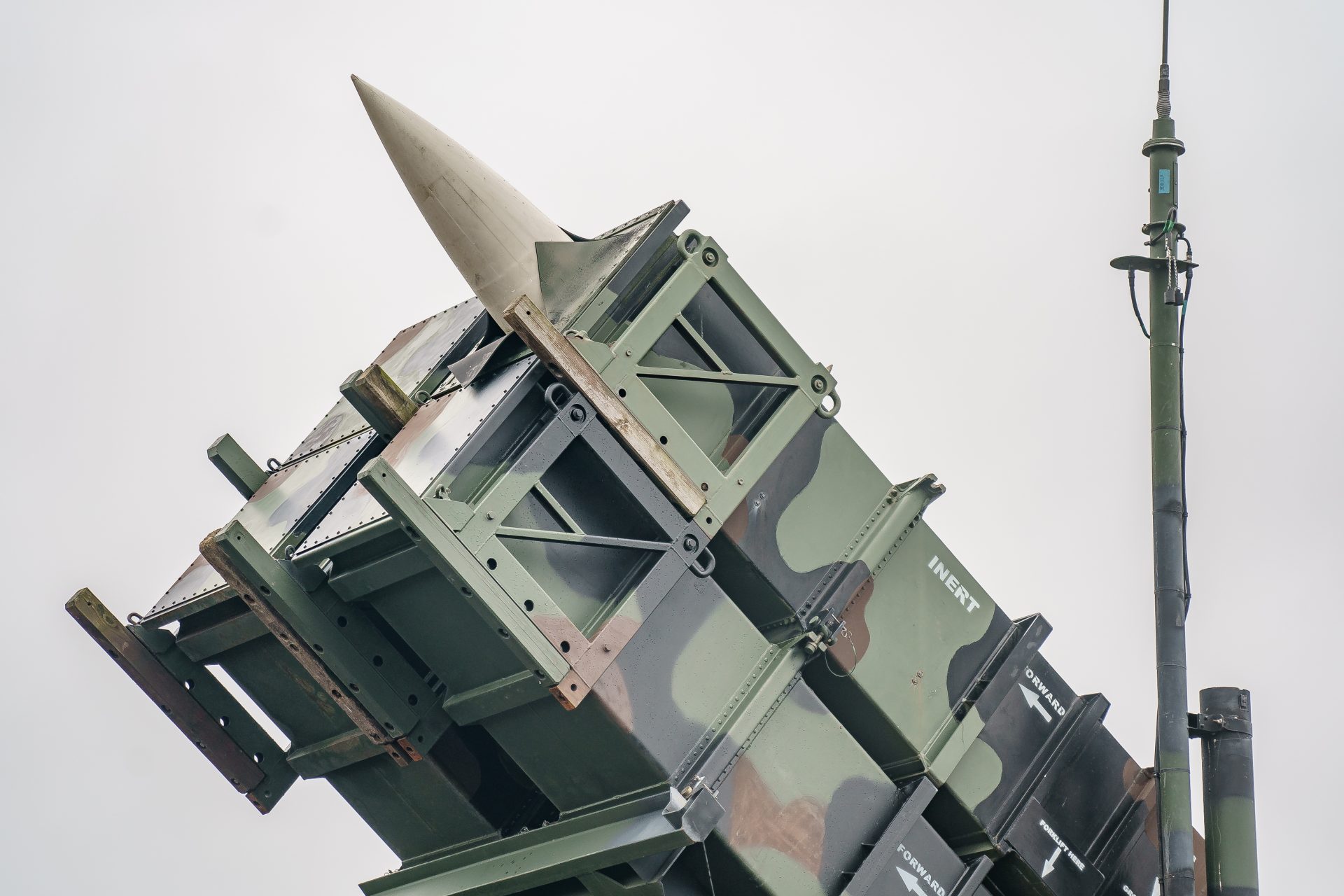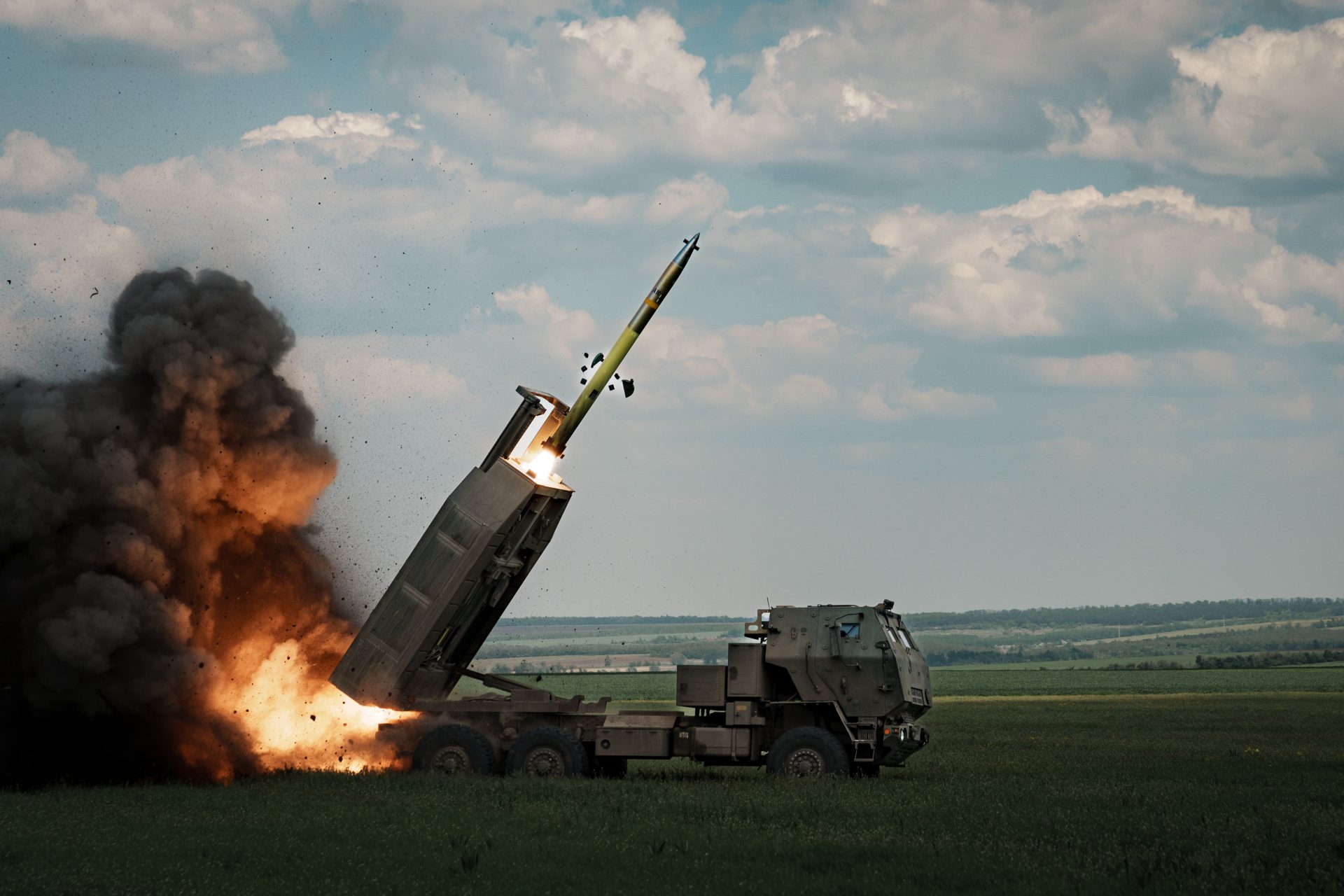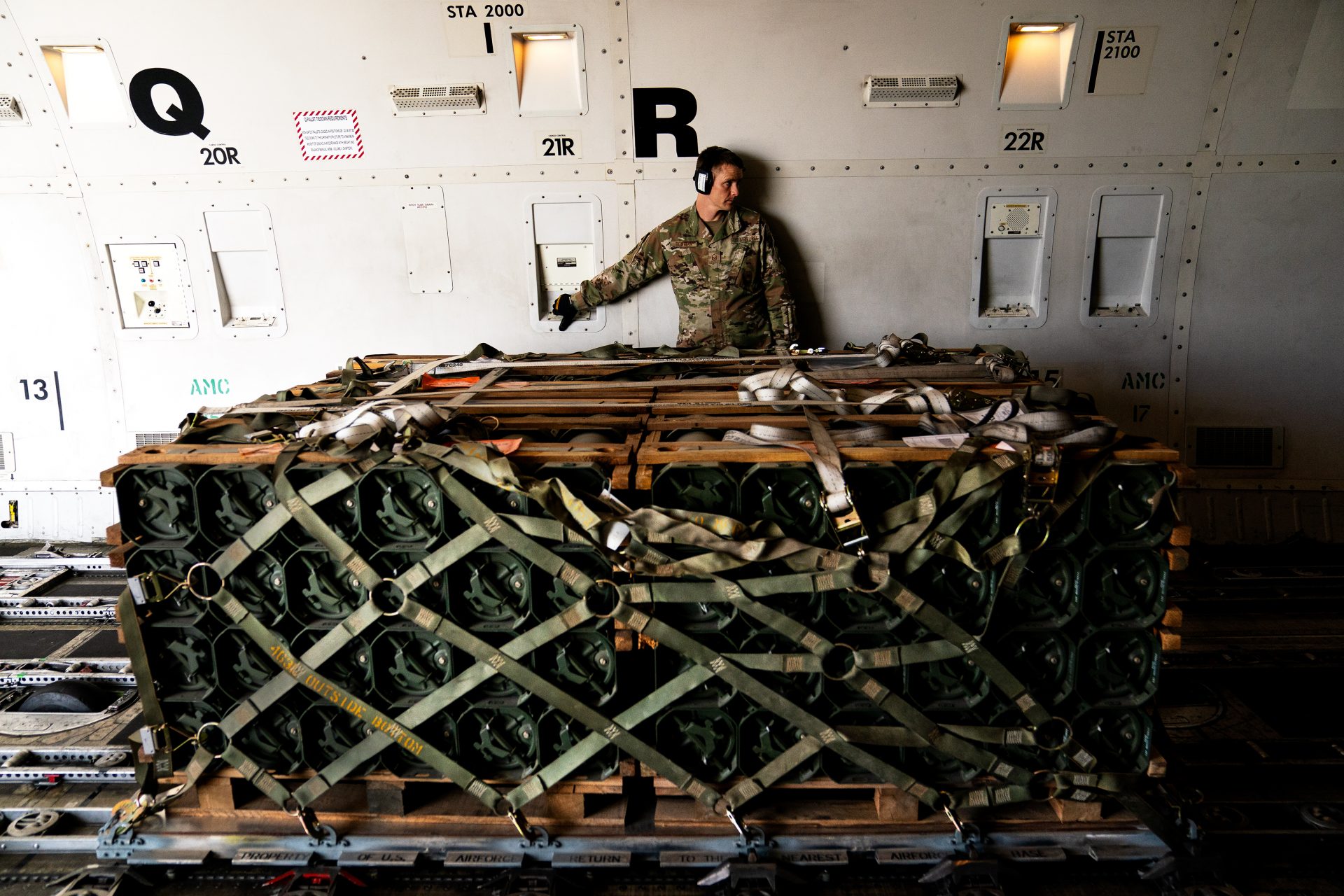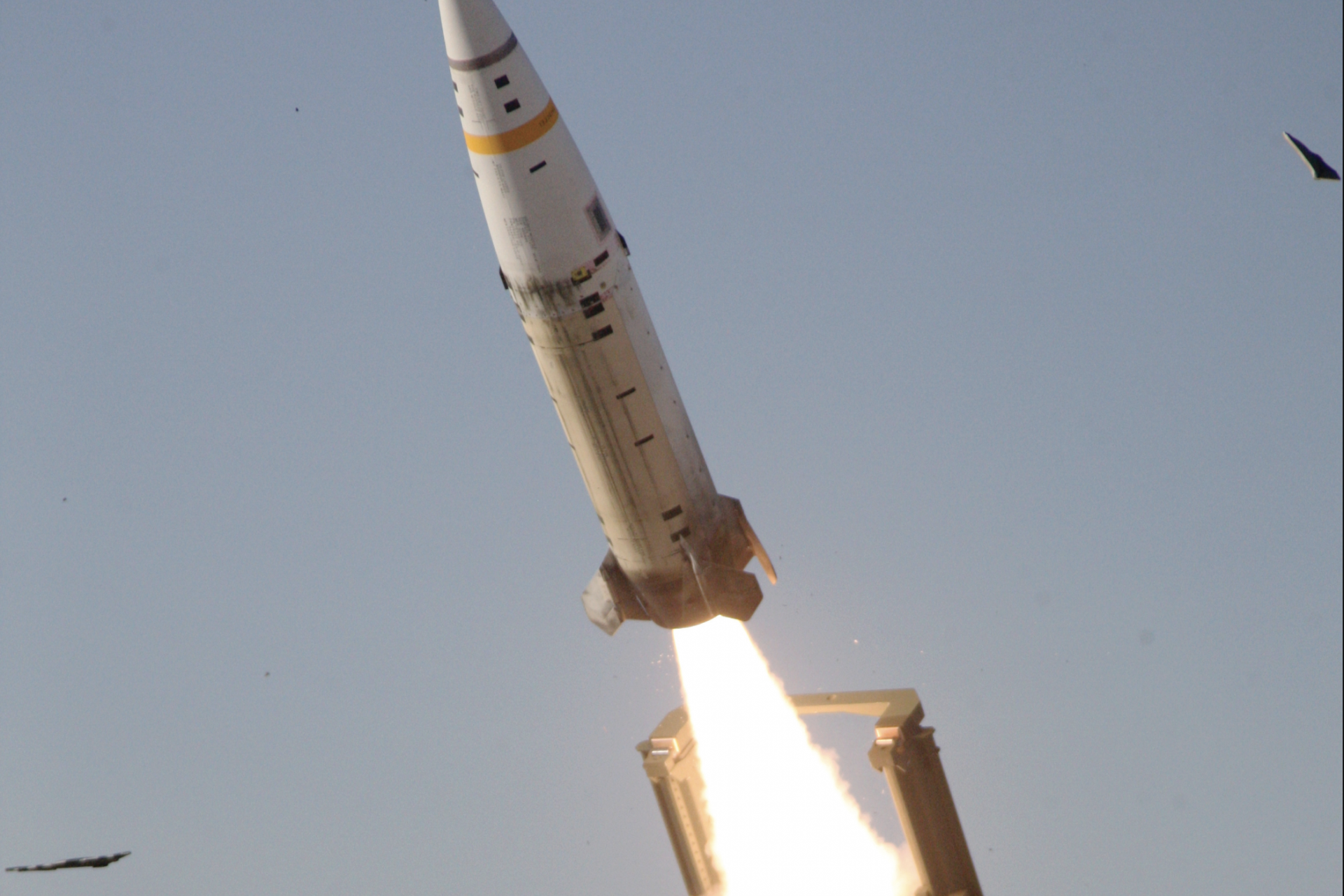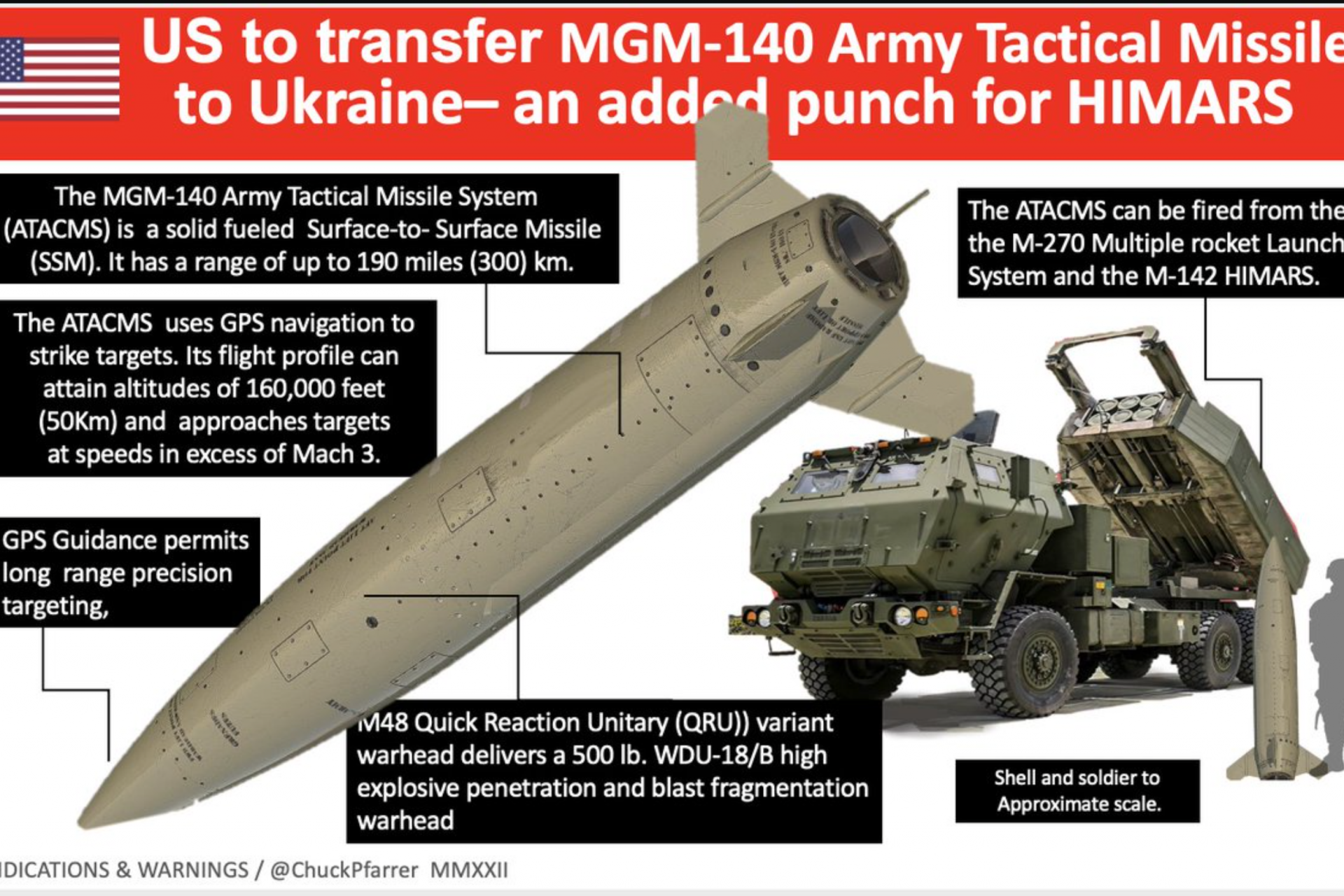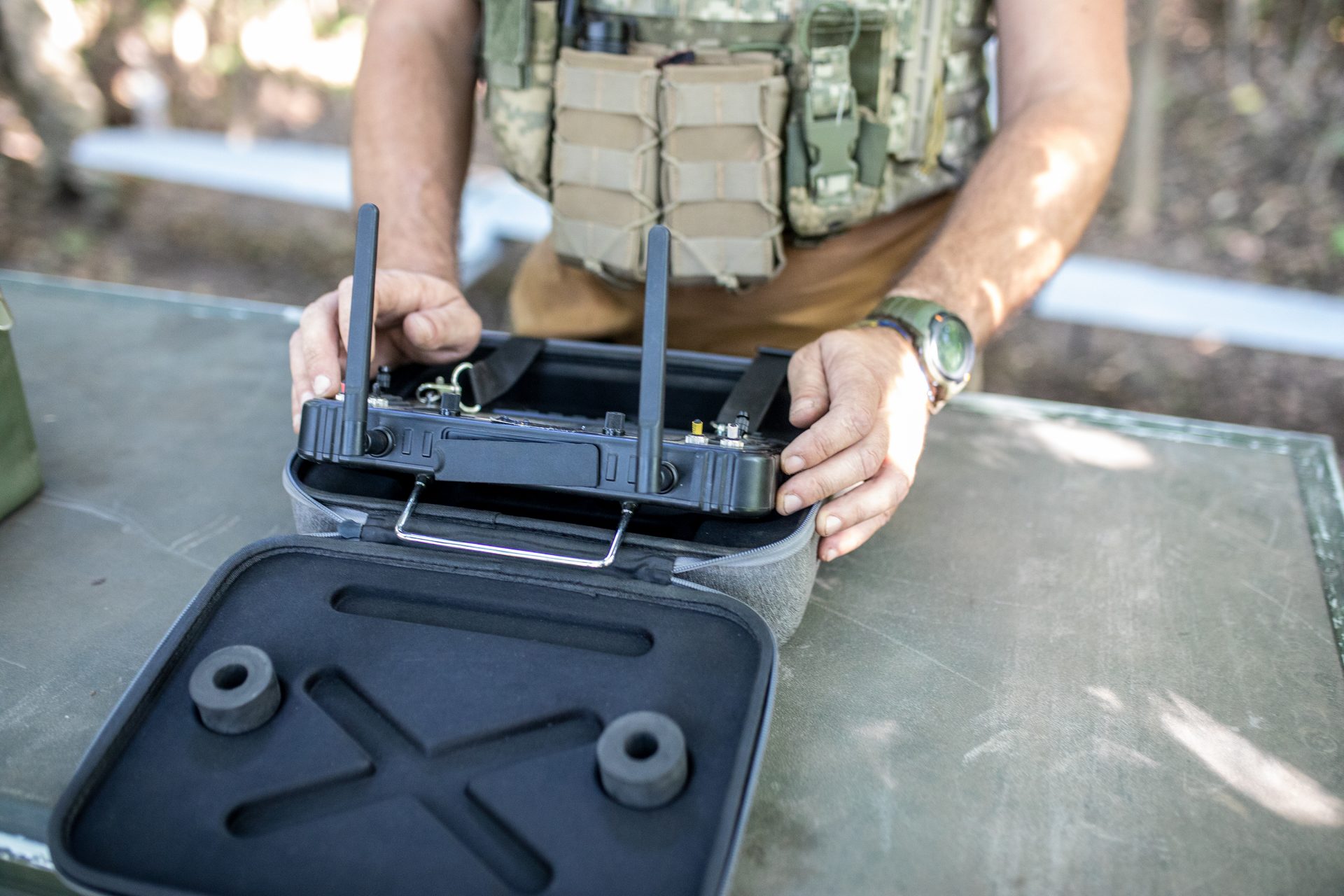Ukraine is getting more long-range missiles from the United States
The United States is planning to send more long-range missiles to Ukraine as part of its new $300 million dollar aid package. But what is the White House sending to Ukraine and how might they help the embattled nation?
Ukraine will be getting an older version of the U.S. Army Tactical Missile System (ATACMS) known as the Anti-Personnel / Anti-Material (APAM) according to an unnamed official who spoke with Politico about the missiles.
"The missiles travel 100 miles and carry warheads containing hundreds of cluster bomblets," Politico's Lara Seligman and Alexander Ward explained. But as with the first supply of ATACMS, these new missiles have not appeared on the list of materials being sent to Ukraine.
"If history is any guide, ATACMS may not appear on the public list of weapons included in the latest package. Officials did not disclose that they were providing the missile in the first shipment last summer, due to concerns over operational security," Seligman and Ward explained.
On March 12th, the United States announced a new security aid package for Kyiv, one that would include additional 155mm artillery rounds as well as ammunition for Ukraine's Guided Multiple Launch Rocket Systems.
Ukraine had its first supply of ATACMSs from the United States in October 2023 and they were used to immediate effect when Russian airfields in occupied Berdyansk and Luhansk were hit by the missiles. But what are these weapons?
Photo Credit: Wiki Commons By U.S. Army Acquisition Support Center, Public Domain
The MGM-140 Army Tactical Missile System (ATACMS) is a ballistic missile system that can be used as part of an artillery rocket system to bridge the gap between ground artillery and cruise missiles according to Military Today.
How these powerful weapons came into Ukrainian hands is complicated. Officials in Ukraine's government had long wanted the United States to furnish Kyiv with the missile but were unable to secure a deal with the Biden administration.
The New York Times reported that for the better part of 18 months, Joe Biden’s answer in response to inquiries regarding ATACMS was simply no. But the president had two very good reasons for his reluctance to supply the missiles to Ukraine.
First, officials in the Biden administration were worried that sending the weapons to Ukraine could be used to strike Russian territory and cross Vladimir Putin’s red line according to Politico, but more importantly, the U.S. just didn’t have enough.
The United States produced roughly 4,000 ATACMS in two configurations over the past two decades and about 600 were fired during the Persian Gulf War and Iraq War, which left few missiles in the American stockpile for its own conflict.
A later Politico report noted that Defense Secretary Lloyd Austin and the Joint Chiefs of Staff under General Mark Milley had long resisted sending ATACMS to Kyiv in case the missiles were needed for other big conflicts that could arise.
It seemed Biden and his administration agreed with this assessment until Kyiv launched its summer counter-offensive and things looked as if they weren’t going smoothly. What happened next has been described differently by American officials.
The New York Times reported that several Biden aides began to see a “clear use case” for ATACMS in Ukraine and a July 14th, 2023 meeting that included Jake Sullivan, Biden’s National Security Advisor, was tasked with developing options to get the weapons to Ukraine.
At 1.5 million dollars a piece, supplying Ukraine with ATACMS would be a costly affair and Biden’s administration was running low on the $40 billion dollars that Congress had approved. However, by September 2023 bthe group had a solution.
Sullivan and his team argued that escalation was no longer an issue due to the use of British-supplied Storm Shadow cruise missiles and Russia’s lack of response. Sullivan and the group also found a workaround for the U.S. supply problem.
Politico’s report on what happened revealed that the administration settled on sending a medium-range version of Anti-Personnel/Anti-Materiel ATACMS rather than the missile's longer-range version, which were in short supply.
Photo Credit: Twitter @ChuckPfarrer
“Their delivery and use marks a major escalation in the administration’s defense of Ukraine, providing Kyiv’s forces with a new and destructive ability to strike Russian targets well behind the front lines,” Politico wrote, and the attacks came quickly.
In mid-October, Ukraine used American-supplied ATACMS for the first time to strike Russian airfields in Luhansk and the port city of Berdyansk according to The Hill, which reported on Russia's losses and stated that Moscow suffered 14 destroyed helicopters.
The UK Ministry of Defence also reported on the losses in an October 20th update on the war and it added that if confirmed, the helicopter losses would impact Russia’s ability to defend and conduct offensives along the southern axis of attack.
Berdyansk was being used as Russia’s Forward Operating Base on the southern axis, which could also mean Moscow will be forced to pull back its aircraft from the base to protect its airframe, further degrading its offensive and defensive capabilities.
More for you
Top Stories



